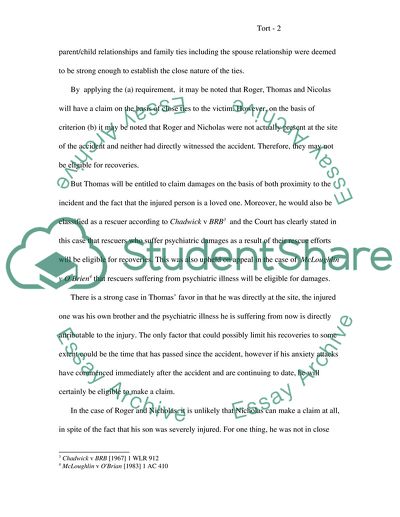Cite this document
(Claims for Psychiatric Injury Case Study Example | Topics and Well Written Essays - 1750 words, n.d.)
Claims for Psychiatric Injury Case Study Example | Topics and Well Written Essays - 1750 words. Retrieved from https://studentshare.org/law/1536652-law-of-tort-essay
Claims for Psychiatric Injury Case Study Example | Topics and Well Written Essays - 1750 words. Retrieved from https://studentshare.org/law/1536652-law-of-tort-essay
(Claims for Psychiatric Injury Case Study Example | Topics and Well Written Essays - 1750 Words)
Claims for Psychiatric Injury Case Study Example | Topics and Well Written Essays - 1750 Words. https://studentshare.org/law/1536652-law-of-tort-essay.
Claims for Psychiatric Injury Case Study Example | Topics and Well Written Essays - 1750 Words. https://studentshare.org/law/1536652-law-of-tort-essay.
“Claims for Psychiatric Injury Case Study Example | Topics and Well Written Essays - 1750 Words”, n.d. https://studentshare.org/law/1536652-law-of-tort-essay.


